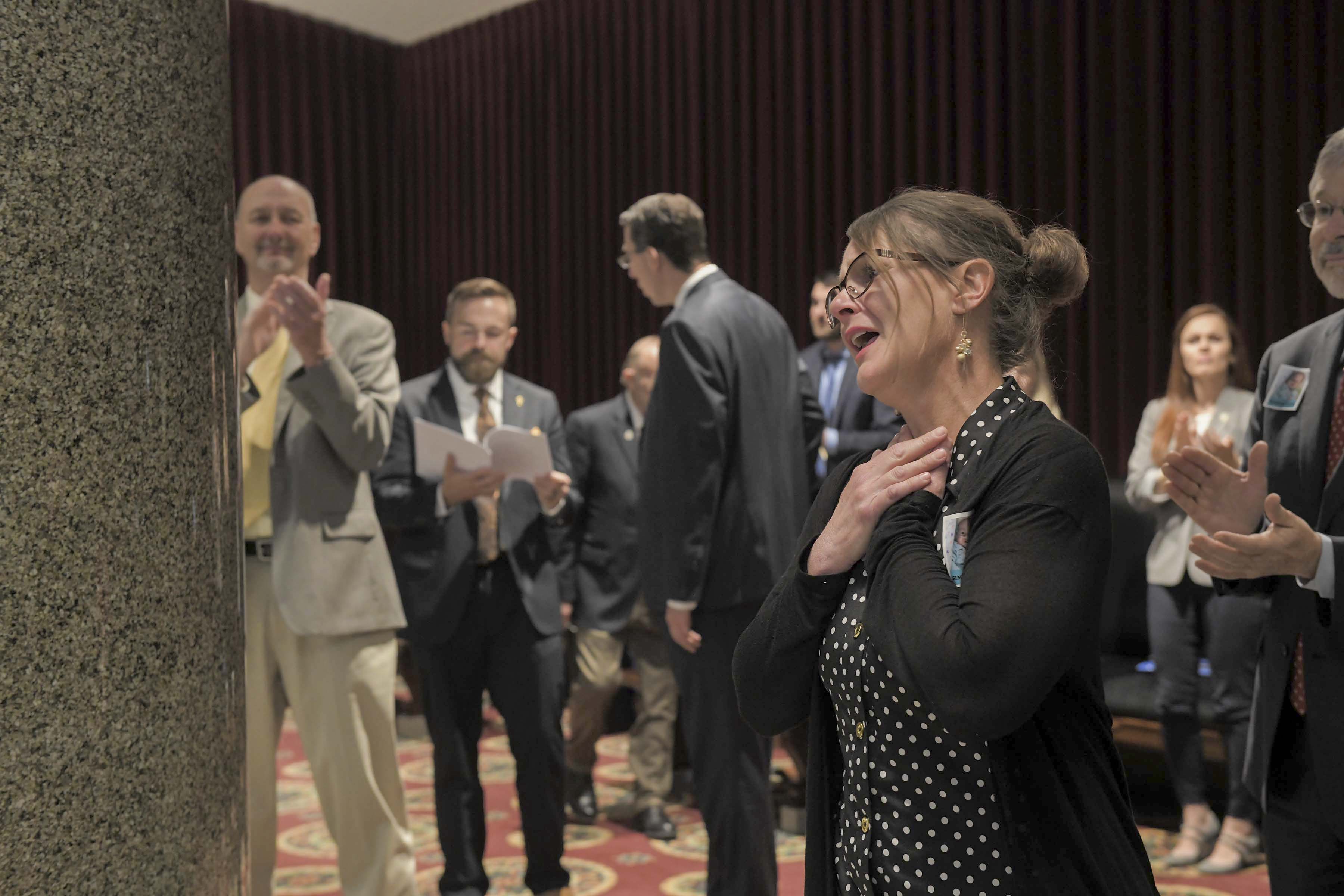JEFFERSON CITY, Mo. — Sheryl Crosier has made it her mission for the past several years to ensure no other family goes through what her family did. And on Monday she was successful in her home state.
Simon, Crosier’s son, was born September 7, 2010. He passed away by Christmas.
The not-quite unique aspect of Simon’s life was a doctor, without the consent of either parent, placing a do-not-resuscitate (DNR) order on his chart. Crosier noted the practice is legal and happens far more often than she expected.
Diagnosed with Trisomy 18, also known as Edward’s syndrome, Simon had a life-threatening developmental disorder. Only about 10 percent of those with the disorder live into adulthood, Rep. Bill Kidd noted.
According to Crosier, Simon’s diagnosis altered his care. She said one doctor turned off Simon’s monitor, and he was given so-called comfort feeds, or the least amount of food.
And just three days before Simon was scheduled to meet with a cardiac surgeon, they “watched in disbelief as our child took his last breaths inside a hospital where he had been a patient for months and no ‘code blue’ resuscitation was engaged.”
Simon died on December 3, 2010. It was only after his death did Simon’s family learn of the DNR.
What the doctor did, putting a DNR on a minor’s chart without parental knowledge, is legal in Missouri and elsewhere around the country. On May 13, 2019, the Missouri General Assembly voted unanimously to make it illegal.
“Today I can rest easy in the fact that I will be able to take my children to a hospital in Missouri and not feel like there are secret DNRs,” Crosier told the Missouri Times. “I was not going to let another attending physician anywhere do this to another child of mine. So I had thought in my mind, ‘Okay, where are the safe states?’”
Missouri, Crosier’s home state, is the fourth to pass “Simon’s Law.”
The bill, HB 138 championed by Kidd, requires a physician communicate with the parents of a minor child, with two witnesses, about a DNR and the chart the response.
An early version of the bill had the parent signing the order, but according to Kidd, some felt it was like signing the death warrant for their child.
“We have rewritten and revised it and rewritten it and revised it until we have gotten…language everyone is agreeable to,” Kidd told the Missouri Times.
He called the path to the bill’s passage a “five-year labor of love.”
With Missouri finally passing the law, this is not the end of Crosier’s advocacy. She is working to take the movement national.

Alisha Shurr was a reporter for The Missouri Times and The Missouri Times Magazine. She joined The Missouri Times in January 2018 after working as a copy editor for her hometown newspaper in Southern Oregon. Alisha is a graduate of Kansas State University.












